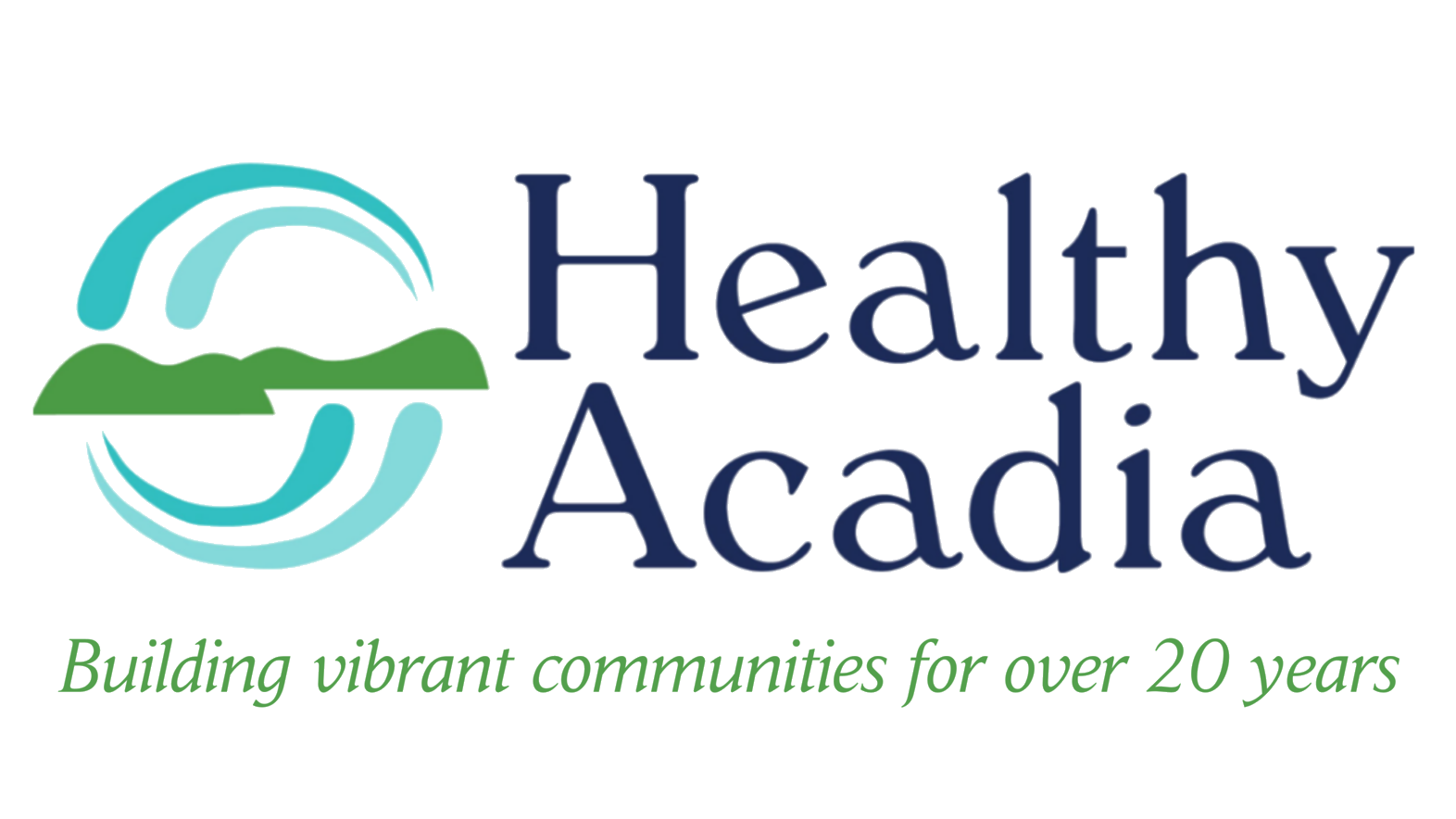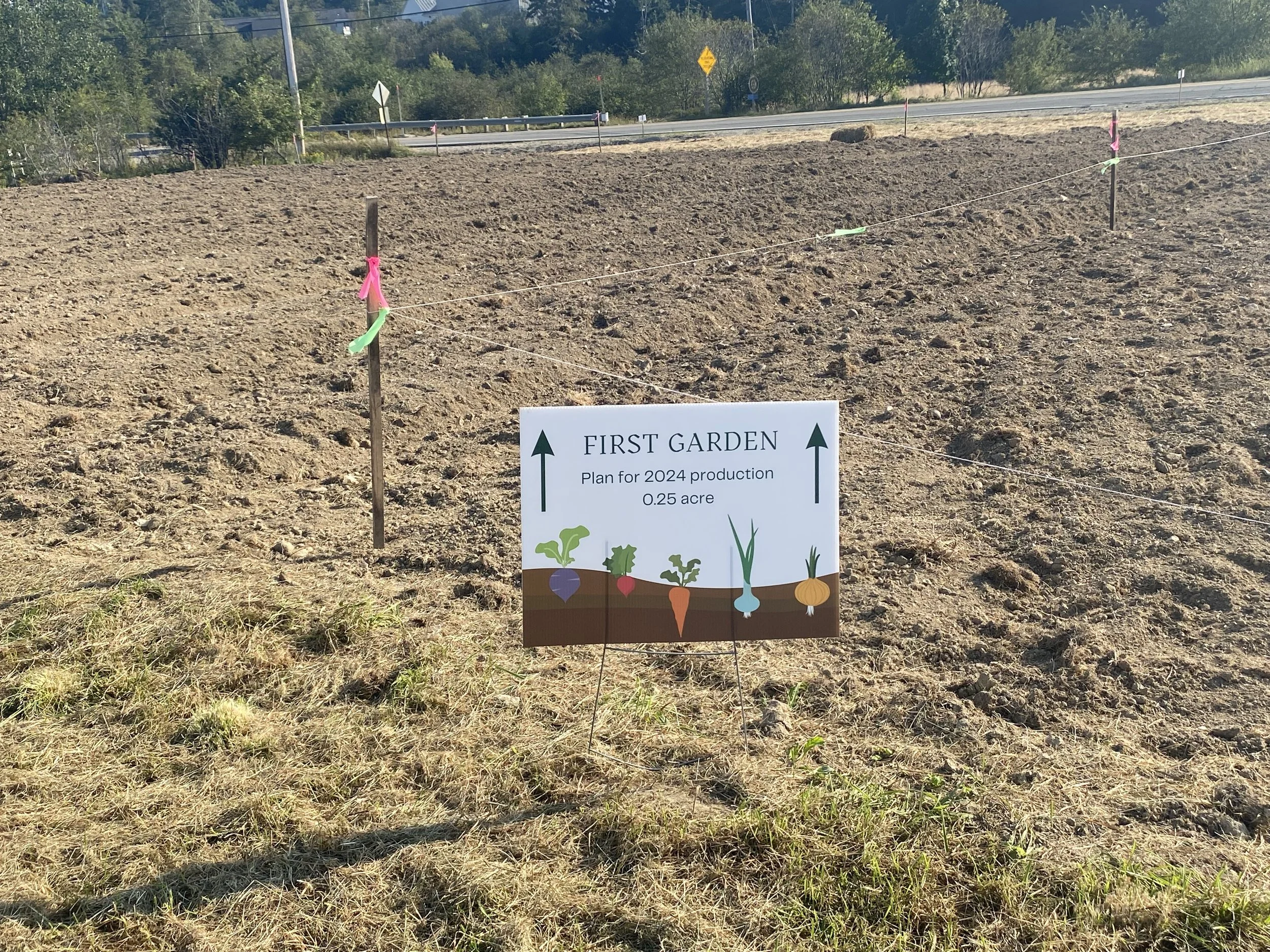Local Restorative Garden Project Finds Inspiration at Maine State Prison
Maine State Prison facility in Warren, Maine.
For immediate release
November 8, 2023
Program Contact: Regina Grabrovac; regina@healthyacadia.org
Media Contact: Tracey Carlson; tracey@healthyacadia.org
Local Restorative Garden Project Finds Inspiration at Maine State Prison
Warren, ME. On a Wednesday afternoon in October, a dedicated team from Healthy Acadia’s Downeast Restorative Harvest (DERH) ventured to the Maine State Prison (MSP) in Warren. Food Programs Director Katie Freedman, Food Programs Manager Regina Grabrovac, and University of Southern Maine graduate student intern Emma Houston had been invited to explore the transformative two-acre garden program at MSP’s maximum security unit as part of their mission to develop the Downeast Restorative Harvest program in Machias.
The Downeast Restorative Harvest garden plot in downtown Machias.
The Downeast Restorative Harvest, a program of Healthy Acadia in collaboration with the Washington County Jail, Department of Corrections, and other community partners, is an innovative jail and community garden initiative situated at 73 Broadway in Machias. The garden will engage jail and prison residents, members of the recovery community, agriculture educators, and numerous other community members in growing food for the jail's kitchen and for donation to local food assistance programs.
The partners are closely cooperating with the Maine State Prison, which has developed a robust horticultural training program to provide healthy food and meaningful vocational training for residents. The first crops will be grown in the 2024 season.
Upon their arrival at the prison, they were greeted by Rebekah Mende, Vocational Trades Instructor and Garden Coordinator, and her dedicated team. Together they embarked on a remarkable journey behind the prison's locked doors, eventually arriving at the heart of MSP, the inner courtyard known to residents as The Mile.
This inner courtyard is an absolute oasis, brimming with a lush mix of perennials, vibrant flowers, pollinator plants, and flourishing vegetables. Nearly every cement wall is lined with meticulously maintained garden beds. Inside the tidy on-site greenhouse, tropical plants thrive alongside essential tools, potting soil, and containers. The remarkable aspect is that nearly all the work is carried out by hand, even as they occasionally use plastic shovels due to certain restrictions on equipment.
Mende underscores that the success of this endeavor is entirely attributed to the dedication and hard work of the incarcerated residents. They desired a pollinator garden, and Mende provided them with plants, seeds, and insects, including Monarch Butterfly chrysalises. In 2021, 27,000 pounds of food was grown in these gardens - an incredible 80% of which was used in the prison kitchen, feeding the thousand or so residents. The remaining 20% was generously distributed to local food pantries.
The commitment and effort of the approximately 30 eligible participants involved in the garden project are clearly evident. The resident gardeners take great pride in the produce they cultivate, relishing the opportunity to enjoy the fruits of their labor in the kitchen, and demonstrating a strong sense of responsibility towards food waste within the facility.
The dedication and sense of ownership of the garden team are inspiring. Many of them, previously unfamiliar with gardening, have blossomed into horticultural experts, researching invasive plant species, composting systems, and cultivating unique edibles such as the Lychee tomato, which the DERH team had the pleasure of sampling during their visit. One resident has even gone a step further, compiling a regular printed newsletter about the garden, complete with puzzles and games, which is circulated throughout the facility.
As the DERH team departed the Maine State Prison after spending several hours on site, they carried an inspired vision. The Downeast Restorative Harvest (DERH) garden program aims to be a unique venture, distinct from the MSP program, taking inspiration from the transformative experience they witnessed. “We are committed to developing a garden that not only nourishes the bodies of those involved,” said Grabrovac. “We envision a garden that also nurtures the souls of incarcerated individuals, much like the profoundly impactful MSP program.”
For more information about Downeast Restorative Harvest, please contact Regina Grabrovac via email at regina@healthyacadia.org or by phone at 207-255-3741.
Healthy Acadia is a 501(c)(3) nonprofit organization that engages in a broad range of initiatives to build healthier communities and make it easier for people to lead healthy lives in Washington and Hancock counties, and across Maine. Learn more at www.healthyacadia.org.
###



